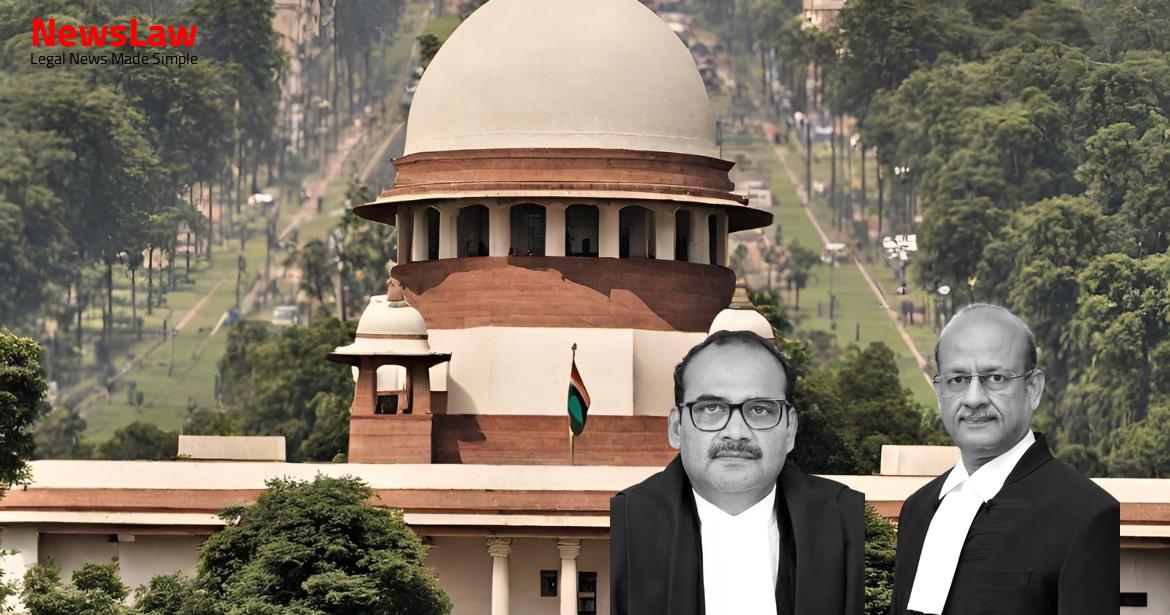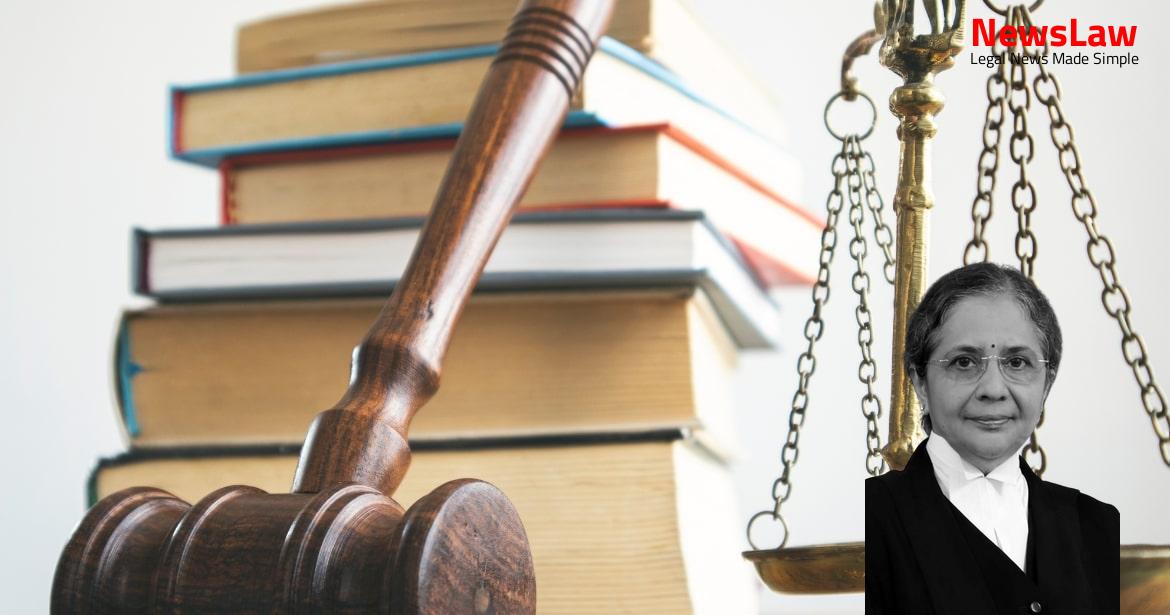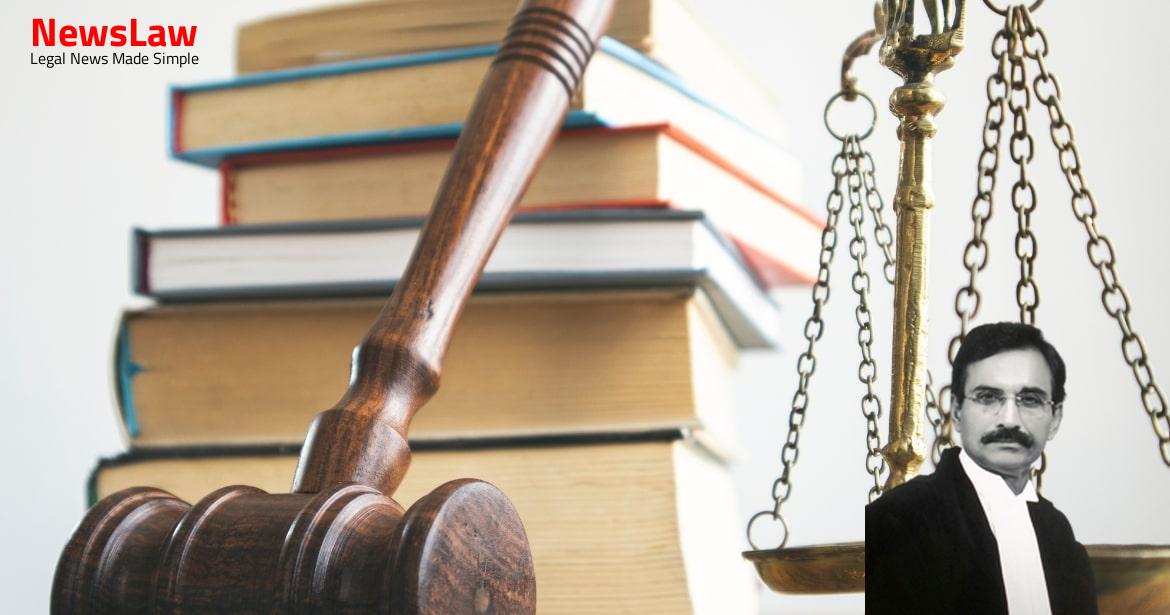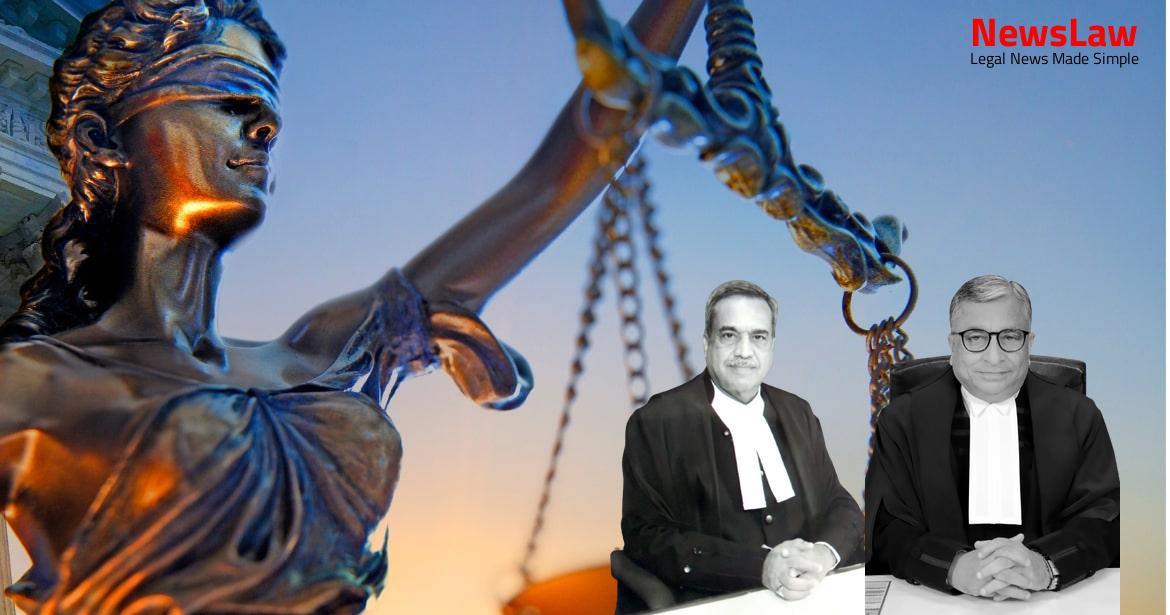The Supreme Court of India delivered a crucial judgment in the case of ICAR vs. Technical Service Employees, focusing on the distinction in pay scale benefits between different cadres within the organization. The case centered around the eligibility for advance increments upon acquiring a Ph.D. qualification, highlighting the unique rules and qualifications for scientists and technical personnel. The court’s decision sheds light on the importance of recognizing the differences in cadres despite similar qualifications.
Facts
- Appellant ICAR issued a scheme in 1999 regarding pay scale revision for scientists.
- Scientists eligible for two advance increments upon acquiring a Ph.D.
- The Tribunal allowed the application by the Technical Service employees for the same benefit as scientists.
- ICAR adopted UGC pay scales for scientists in ARS and awarded advance increments for Ph.D. qualification.
- The High Court dismissed ICAR’s appeal against the Tribunal’s order.
- The nature of duties in Agricultural Research Service and Technical Service are different.
- The employees under these services are governed by separate sets of Service Rules.
- Recruitment for scientists was on All India basis through competitive examination, while technical service had grades I, II, and III.
- High Court upheld the order of the Tribunal based on the wrong premise of invoking Article 14.
- The court tried to equate scientists and technical staff, solely based on their employment with the appellants.
- This decision was deemed incorrect as it lacked proper justification or reasoning.
Also Read: Landmark Judgement: Dealership Agreement Termination and Natural Justice
Arguments
- The Tribunal allowed the application filed by the technical personnel which granted them benefits similar to those given to scientists upon acquiring a Ph.D. qualification.
- The Tribunal’s decision was to set aside the previous orders and rejection of the application filed by the technical personnel.
- The argument made was that the technical personnel acquiring a Ph.D. qualification should be eligible for lateral entry to the scientists cadre.
- It was emphasized that both scientists and technical personnel have different sets of rules and belong to distinct cadres despite serving the same organization.
- The technical personnel were granted two advance increments upon obtaining a Ph.D., similar to what scientists receive, establishing a link between the qualification and the scientist cadre.
- A Circular dated 01.05.1995 permitted technical staff with a Ph.D. qualification to be included in research projects and reports alongside scientists.
- The Senior Counsel for the technical personnel argued that the extension of ARS Study Leave Regulations, 1991 to them aimed at encouraging qualification improvement without promising any financial benefits.
- Grant of advance increments encouraged technical personnel to improve qualifications
- Encouraged technical personnel to contribute more efficiently to research
Also Read: Medical Negligence Case: Suket Hospital & Others vs. Claimant-Jyoti Devi
Analysis
- The root cause of the litigation is the circular dated 27.02.1999 revising pay scales for scientists after the Fifth Central Pay Commission’s recommendations were accepted.
- The circular granted incentives for Ph.D./M.Phil degrees, including advance increments and eligibility criteria for scientists.
- The study leave for pursuing a Ph.D. for technical personnel aimed at improving qualifications, not entitlement to benefits granted to scientists
- Article 14 of the Indian Constitution does not apply in this context.
- Agricultural Research Service scientists received UGC pay scales from 01.01.1986, constituting two services: ARS and Technical Service.
- The benefit of two advance increments for acquiring a Ph.D. was part of the scientists’ pay package.
- Technical personnel were distinct from scientists, with different rules, qualifications, and duties.
- Institutions may provide incentives for higher qualifications based on job requirements, including persons involved in scientific research planning, programming, and management.
- Technical personnel did not receive the same benefits as scientists, despite the extension of Study Leave Regulations to them.
- ICAR classified scientific and technical categories under Bye-laws 21 of Rules and Bye-laws.
- Ph.D. qualification alone does not automatically qualify technical personnel for the grant of two advance increments if not recommended for them.
- The appellants adopted revised scales for technical personnel as recommended by the Government of India for Central Government employees.
- Obtaining a Ph.D. qualification does not entitle technical staff to lateral entry as scientists.
- The additional qualification makes them eligible for a higher post in a different cadre, not for benefits attached to a higher post in a different cadre.
- The Entries in List I of the 7th Schedule only prescribe limits of the powers of the Parliament or the State Legislature to enact laws.
- The Tribunal and High Court erred in equating technical personnel and scientists, granting advance increments to the respondents to which they are not entitled.
Also Read: State of Karnataka v. Jairaj: Quashing of FIR Reversed by Supreme Court
Decision
- Present appeals found to have merit.
- Original Applications filed by the respondents dismissed.
- Impugned orders passed by the High Court and Tribunal set aside.
- Orders allowed.
- No order as to costs.
Case Title: INDIAN COUNCIL OF AGRICULTURAL RESEARCH THROUGH THE DIRECTOR GENERAL Vs. RAJINDER SINGH . (2024 INSC 622)
Case Number: C.A. No.-000097-000098 – 2012



